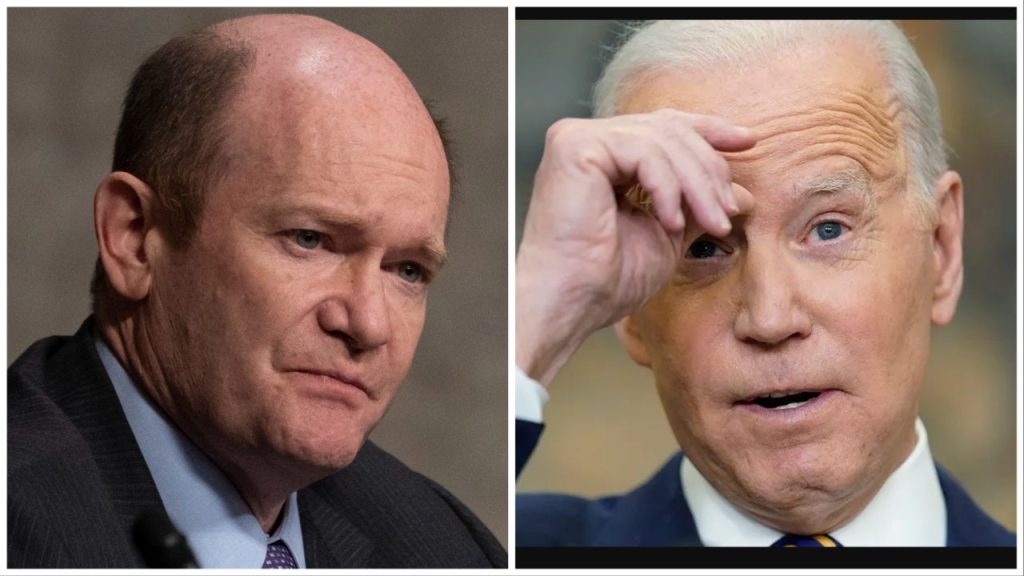The saga of the JUDGES Act, a bipartisan bill aimed at alleviating the burden on the federal judiciary by creating 66 new district judgeships over a decade, culminated in a presidential veto, sparking disappointment and accusations of political maneuvering. Senator Chris Coons, a close ally of President Biden and a key architect of the bill, expressed his dismay at the outcome, emphasizing the years of bipartisan effort invested in crafting the legislation with his Republican counterpart, Senator Todd Young. Coons lamented the lost opportunity to address the mounting caseloads plaguing federal courts nationwide, highlighting the bill’s careful design to distribute the new judgeships over an extended period, thereby preventing any single administration from wielding excessive influence over judicial appointments.
While expressing his disappointment, Coons placed the blame squarely on House Republicans, accusing them of deliberately delaying the bill’s passage until after the 2024 presidential election. He argued that this strategic move politicized a previously nonpartisan process, designed specifically to avoid such partisan considerations. The Senate, Coons pointed out, had unanimously passed the bill in August, demonstrating broad bipartisan support. However, the House, under Republican control, chose to wait for the election results before acting on the legislation, effectively transforming it into a political football. This delay, according to Coons, prompted the White House veto.
Republicans, however, offered a contrasting narrative. They accused the Biden administration of wielding its veto power to deny President-elect Trump the opportunity to fill the proposed new judgeships. Speaker Mike Johnson highlighted the initial bipartisan support for the bill in the Senate, suggesting that Democrats had backed the legislation when they anticipated a Kamala Harris victory in the 2024 election. The subsequent shift in Democratic support, culminating in the White House veto threat, was attributed to partisan politics, with Republicans arguing that Democrats were now obstructing progress solely due to the change in presidential fortunes.
The diverging perspectives underscore the underlying political tensions surrounding judicial appointments. While the JUDGES Act aimed to address a practical need within the federal judiciary, the timing of its consideration became entangled with the 2024 election cycle. The Senate’s unanimous passage of the bill initially signaled a rare moment of bipartisan cooperation, but the subsequent delay in the House and the eventual presidential veto revealed the enduring influence of political calculations on judicial matters. The outcome serves as a stark reminder of the challenges in achieving genuine bipartisan progress on issues of significant national importance, particularly in a highly polarized political climate.
The JUDGES Act, designed to incrementally expand the federal judiciary over a ten-year period, ultimately fell victim to the political crosscurrents of the 2024 election. While proponents emphasized the bill’s bipartisan origins and its potential to alleviate the strain on the federal court system, the timing of its consideration became inextricably linked to the presidential race. This politicization ultimately undermined the bill’s prospects, culminating in a presidential veto and leaving the federal judiciary grappling with its existing challenges. The debate surrounding the JUDGES Act highlights the difficulty of separating judicial matters from political considerations, even when the underlying need for reform is widely recognized.
The JUDGES Act’s failure also raises broader questions about the politicization of the judicial branch. While judicial appointments have always been subject to political influence, the increasing polarization of American politics has further intensified the scrutiny and maneuvering surrounding judicial nominations and confirmations. The JUDGES Act, intended to address a practical concern within the judiciary, became ensnared in the broader political battle over the composition of the courts. This episode serves as a cautionary tale about the challenges of achieving genuine bipartisan cooperation on judicial matters in an increasingly polarized environment. The need for judicial reform remains, but the path forward remains uncertain in the wake of the JUDGES Act’s demise.










